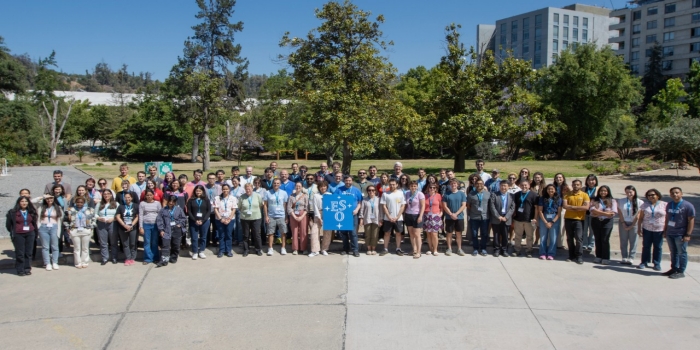
Highly Accreting Supermassive Black Holes Across all Cosmic Times:
from the Local Universe to Cosmic Dawn
December 1-5, 2025
Active galactic nuclei (AGN) are among the most dynamic and powerful sources in the universe, powered by supermassive black holes (SMBHs) through mass accretion. The accretion rate influences many AGN properties, with high accretion rates playing a key role in growing black holes and launching outflows that may shape the host galaxy's growth. Highly accreting AGN, particularly at low redshift, offer a benchmark to understand the rapid growth of the first SMBHs in the early Universe, which remains a mystery to be solved.
Significant theoretical and observational advancements have been made in understanding fast-accreting systems, thanks to long-running observatories like VLT, ALMA, JVLA, Chandra, XMM, HST, and NuSTAR, as well as the recently launched JWST, Euclid, and IXPE. With the first light of the ELT on the horizon and the recent results from JWST on the growth of SMBH at high redshift, now is the ideal time to convene and share insights on highly accreting SMBHs. The workshop will gather astronomers to summarize the field’s current status, bridging the accretion history from the early to the local Universe, and explore the mechanisms driving their growth and impact on the Universe.
This workshop will focus on the following key themes:
- NLS1s and other low-z highly accreting AGN and their cosmological implications;
- Outflows, jets, feedback in highly accreting sources from the nearby Universe to cosmic dawn;
- Surrounding environment and host galaxy properties of highly accreting AGN at all epochs;
- Theoretical and observational advances in the nuclear properties of extreme accreting AGN from low-z to high-z;
- Changing-look, tidal disruption event and their implication in changing the accretion state of AGN;
- Recent progress in the study of QSOs at high-z and AGN evolution;
- Recent observations with state-of-the-art facilities (JWST, ALMA, XMM-Newton), future observations with new facilities (Vera Rubin, Athena, ELT, SKA, 4MOST, AXIS, PRIMA), theoretical modeling and AI.
The workshop will be held in person at the ESO premises in Santiago, Chile, with remote participation available via MS Teams.
The number of in-person participants will be limited to 90 due to the capacity of the venue.
E-mail: agn2025_loc@eso.org


